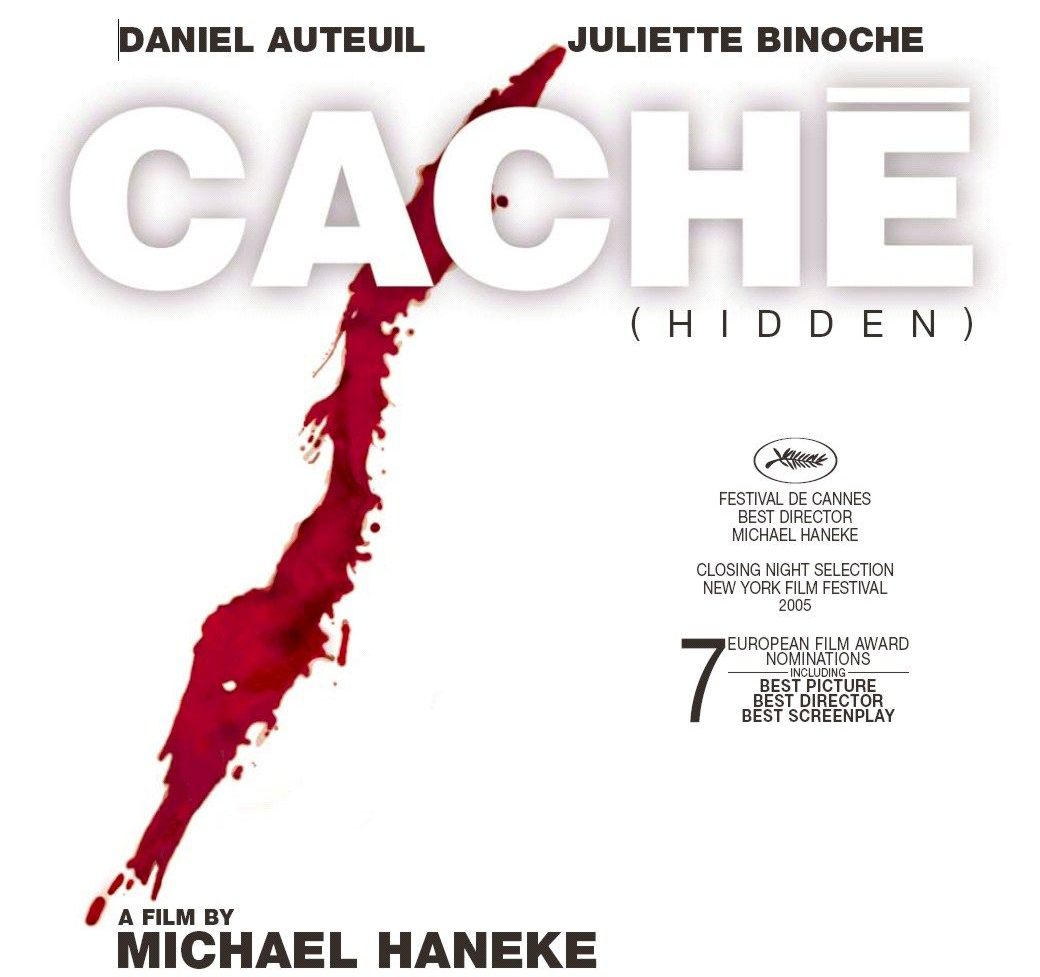
There is a scene about midway through Hidden where a news report detailing a need for greater openness about the Iraq War plays out. Our protagonist announces “about time”. But as we cut to the wide we see that he is not watching the programme, rather his wife is back home late. His accusatory tone is for her, not us.
This microcosm perfectly captures the themes within Hidden. The rise of neo-imperialism and the infringements on privacy and rights that are going unchecked as we collectively sleep at the wheel. Combined with the ambiguities that exist even within the tightest of familial units, do we ever know what our partners and loved ones are doing and thinking?
Michael Haneke’s Hidden is a slow-burner thriller situated in a post-9/11 Paris and centred around a Parisian family of a husband, wife and son. The husband, George Laurent, played by Daniel Auteuil, is a successful television host of an intellectual programme on literature. But he has a dark secret in his past, a sinister keystone moment that is explored across the film. Juliette Binoche is spectacular in the supporting role of the wife, Anne Laurent, as the familial threads begin to fray and she must come to terms with the discoveries. The family is being assaulted by a mysterious stalker. They are leaving recordings of their property on their doorstep that slowly drives the plot forward, culminating in a finale where no one is left unscarred.
Thematically, one could argue, Hidden is a sequel to Francis Ford Coppola’s 1974 thriller, The Conversation. But whilst The Conversation boils over with tension and reshapes how we view the eponymous conversation, Hidden, slowly unpacks one man’s guilt and subsequently the collective guilt of colonialism. How past events and scars echo through time and the burden this places on those involved is a key theme. The Conversation concludes with a twisted certainty of what has occurred, but Hidden leaves the viewer to ponder on the events. As if saying, even with all this surveillance you can never be completely sure.
Hidden’s themes are certainly not outdated in today’s hyper-surveillance society we live in. Though viewers shouldn’t expect this film from 2005 to be completely relevant nor easy to watch. The stalker delivers his surveillance on VHS tapes after all. For some this grounding in a particular time will be a turn-off. It would also be false of me to say Hidden is an easy watch. It’s a slow movie, holding on shots for perhaps too long and densely littering them with information. Also, don’t expect the movie to be as tense as a more traditional thriller, Hidden is demure and subtle. But I would implore you to look beyond these contemporary elements and be patient with the film as underneath is a thought-provoking piece.
Hidden’s greatest strength will also perhaps be its biggest detriment, its ambiguity. So much of what is told within Hidden is left up to the viewer’s interpretation. We are bombarded with flashes of George’s childhood and some sinister ruinous event. This is slowly revealed further as the film progresses, but you can’t help not trusting George’s account, especially as he so fervently denies responsibility. Not all mysteries are solved. Certain things are merely implied and hinted at, leaving the viewer to tantalise over what is hidden behind the images. The final wide is left purposefully ambiguous and forces the movie to stay in the audience’s mind long after it has finished.
Hidden is a movie that explores the effects of colonialism, how it shapes our lives and gives privilege even to this day. It is a critique of our reaction to 9/11 and the subsequent actions we took. The film is an accusation, a finger being pointed at us. For those of us who are okay with not knowing everything for certain and are willing to face our collective guilt, Hidden is a masterpiece.
